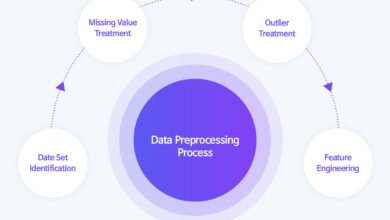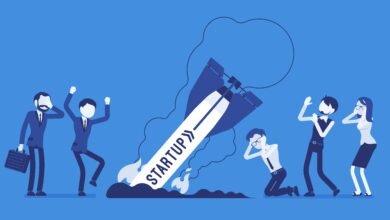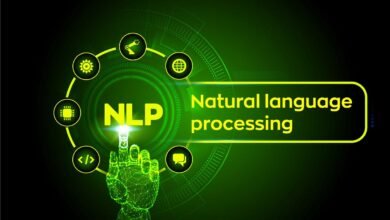Top AI Startups to Watch in 2025 Who’s Actually Making Money
Discover the most profitable AI startups to watch in 2025. Learn about OpenAI, Anthropic, Midjourney, and emerging companies generating massive.

The AI startup ecosystem has undergone a remarkable transformation from speculative venture into a thriving, revenue-generating industry dominated by companies delivering genuine business value. While 2023 brought the ChatGPT revolution and intense market hype, 2025 marks a pivotal shift where the most successful AI companies are no longer just attracting venture capital—they’re actively generating substantial profits and building sustainable business models that extend far beyond initial expectations. Unlike previous technology cycles where investor enthusiasm often preceded profitability by years or even decades, today’s leading AI startups are demonstrating real-world traction with billions in annual recurring revenue (ARR), impressive profit margins, and expanding customer bases. The artificial intelligence industry has matured dramatically, moving beyond experimental applications and pilot projects into mission-critical enterprise solutions that companies depend on daily. This transition from promise to performance separates the winners from the losers in an increasingly competitive and consolidating landscape.
The market data tells a compelling and unmistakable story. OpenAI generates approximately $1.08 billion monthly with $13 billion in annual recurring revenue as of July 2025, making it the most valuable private AI company at a $300-500 billion valuation. Meanwhile, Midjourney generates approximately $42 million monthly with $500M ARR estimated for 2025, bootstrapped with $0 raised and $0 marketing spend while remaining profitable since inception. These aren’t statistical outliers or exceptions—they represent a broader pattern where AI unicorns and emerging machine learning startups are achieving profitability at unprecedented speed and scale. Artificial intelligence now powers over 6.2% of all global startups and accounts for nearly 9.2% of unicorns, underscoring its central role in shaping the modern innovation economy and corporate strategy. The implications are staggering: AI businesses are creating more value faster than any technology category in history.
What distinguishes the winners from the vast majority of AI startups struggling for traction? The most successful AI vendors focus relentlessly on solving tangible business problems rather than chasing science fiction fantasies or pursuing solutions looking for problems. Whether through groundbreaking natural language processing breakthroughs, advanced predictive analytics, specialized enterprise applications, or infrastructure improvements, profitable AI businesses deliver immediate and measurable return on investment to customers. Understanding which AI startups to watch in 2025 requires moving beyond funding announcements and press releases to examine actual revenue generation, customer acquisition costs, retention metrics, and long-term business sustainability. This comprehensive guide explores the top AI companies reshaping their respective industries while building genuinely profitable operations designed to last.
OpenAI: The Dominant Force in Generative AI and Language Models
- OpenAI stands as the undisputed leader in the AI startup landscape, commanding an extraordinary $300-500 billion valuation through its revolutionary language models and generative AI capabilities that have fundamentally changed how people interact with technology. The creator of ChatGPT serves 700 million weekly active users with 15 million ChatGPT Plus subscribers and 5 million business users, achieving an astounding 194% year-over-year revenue growth that demonstrates sustained market demand. The company’s dominance stems from its vertically integrated approach, spanning text generation, voice capabilities, image creation through DALL-E, and video generation through Sora, creating an ecosystem of AI products that reinforces customer stickiness.
- OpenAI’s business model represents a masterclass in AI monetization that other AI companies continuously study and attempt to replicate. The company operates on a dual-revenue stream combining consumer subscriptions via ChatGPT Plus and enterprise API access for developers building AI-powered applications that improve business operations. OpenAI’s success stems from its vertically integrated product stack across text, audio, and image generation, combined with a commanding 59.5% market share in the AI chatbot market that reinforces network effects. This diversified approach insulates the company from revenue concentration while ensuring multiple paths to customer acquisition and expansion. The company’s strategic partnerships extend beyond Microsoft to include integration partnerships with major enterprise software vendors.
The strategic partnership with Microsoft represents another critical success factor that deserves attention. Microsoft’s $10 billion investment and systematic integration of OpenAI technology into enterprise products like Copilot have created powerful network effects that strengthen both companies while creating switching costs for customers. For investors and entrepreneurs studying AI businesses, OpenAI demonstrates how machine learning leadership combined with strategic partnerships creates sustainable competitive advantages and extraordinary valuations. The company’s ability to continuously release new capabilities—from improved models to new modalities—maintains market leadership and justifies premium pricing to enterprise customers.
Anthropic Pioneering Responsible AI and Enterprise Safety

Anthropic has rapidly established itself as a serious and credible challenger to OpenAI by combining exceptional technical excellence with an unwavering focus on AI safety, alignment, and responsible development practices that appeal to enterprise customers. Anthropic generates approximately $417 million monthly with $5 billion in annual recurring revenue as of mid-2025 and a $183 billion valuation as of September 2025, demonstrating remarkable growth from a 2021 founding. The company serves a diverse and growing customer base with 300,000+ business customers, with 70-75% of revenue from API calls on a pay-per-token model, while large accounts exceeding $100K ARR grew 7x year-over-year, indicating strong enterprise adoption momentum.
Founded by former OpenAI researchers, including Dario and Daniela Amodei, Anthropic brings significant credibility and technical depth to the AI safety conversation that extends beyond marketing claims. The company’s flagship product, Claude, represents a sophisticated language model specifically designed to prioritize transparency, reduce hallucinations, and align decision-making that corporate clients trust for sensitive applications. For enterprises concerned about deploying generative AI responsibly and managing legal liability, Claude offers a compelling alternative to competitors with a different approach to model safety. The company’s research publications and transparency reports build trust with organizations navigating regulatory requirements.
The company’s rapid profitability trajectory, reaching ARR in the billions with continued momentum and improving unit economics, proves that AI startups addressing genuine enterprise concerns can build exceptional value without following OpenAI’s exact playbook. Anthropic’s success suggests that competing with OpenAI doesn’t require copying their model—instead, differentiation through responsible AI development, superior safety measures, and customer-centric design creates defensible competitive positions. The company continues to invest heavily in research and infrastructure, positioning itself for continued growth and market share gains.
Mistral AI: Europe’s Answer to American AI Dominance
Mistral AI represents a crucial emerging competitor bringing French innovation and European values to the global AI marketplace, challenging the American dominance of large model development. Mistral AI generates approximately $2.5 million monthly with €28M (roughly $30M) for 2024, targeting $60M in 2025, achieving a $13.8B valuation in September 2025 Series C with $1.2B total funding from prominent investors. The company’s trajectory shows remarkable growth metrics, with employees achieving 200% year-over-year growth from 2023-2024, with investors including ASML, Microsoft, Nvidia, and Salesforce recognizing the company’s potential. This institutional backing demonstrates confidence in Mistral’s ability to capture significant market share.
Mistral’s appeal lies in its dual-pronged strategy: offering both open-source models for developers seeking transparency and customization alongside proprietary solutions for enterprises requiring guaranteed support and liability protection. This approach creates powerful network effects among the developer community while maintaining premium revenue streams from enterprise customers, maximizing total addressable market penetration. The company’s emphasis on AI sovereignty and European data protection appeals to organizations increasingly concerned about data residency, regulatory compliance, and geopolitical independence from American technology vendors. For AI startups, Mistral demonstrates how regional differentiation and focus on specific enterprise concerns can successfully challenge global incumbents.
The company’s commitment to remaining independent—rejecting acquisition offers despite massive valuations—indicates confidence in long-term opportunities and a vision of becoming Europe’s dominant AI company. Mistral AI competes with OpenAI as a European alternative offering both open-source and proprietary models, serving as a European AI champion with strong government support and an unwavering focus on AI sovereignty and European values, with confirmed plans to pursue IPO as a long-term goal rather than acquisition exit.
Midjourney: Disrupting Creative Industries with Zero Traditional Funding
Midjourney represents perhaps the most remarkable profitability story in the entire AI startup ecosystem, achieving extraordinary financial success through unconventional means that contradict Silicon Valley orthodoxy. Midjourney generates approximately $42 million monthly with $500M ARR estimated for 2025, bootstrapped with $0 raised and $0 marketing spend, while remaining profitable since inception, a combination that seems almost impossible by venture capital standards. The image generation company operates with merely 40-100 employees, achieving an extraordinary $5-12M revenue per employee (highest in the entire AI industry), operating entirely through Discord community engagement without relying on traditional VC funding or expensive marketing campaigns.
Midjourney’s success illuminates a critical lesson for entrepreneurs: AI businesses don’t require massive capital raises to become profitable when product-market fit is exceptional and the go-to-market strategy leverages communities effectively and authentically. The company’s Discord-native approach transformed a communication platform into a viral distribution channel and community engagement mechanism that rivals social media platforms in engagement metrics. The market-leading AI image generation platform serves 21M+ Discord members (the largest Discord server globally) with approximately 1.4M paying subscribers at $10-120/month pricing tiers, achieving a $10-10.5B valuation estimate based on revenue multiples and growth trajectory.
For entrepreneurs launching AI startups, Midjourney demonstrates that venture capital funding isn’t a prerequisite for success when founders understand their market deeply. Instead, focused product excellence, community-driven growth, sustainable unit economics, and reinvestment of profits create more defensible businesses than capital-intensive approaches that often sacrifice profitability for growth. The company’s recent partnership with Meta and launch of standalone web applications suggest confidence in sustained growth without dependency on traditional venture capital relationships or constant fundraising cycles.
Harvey: Transforming Legal Services Through Specialized AI
Harvey represents the new generation of specialized AI startups winning by focusing laser-like on vertical markets where AI creates enormous value. The company announced a second $300 million funding round in June 2025 at an accelerating pace, with the Series E round co-led by Kleiner Perkins and Coatue, bringing the company’s valuation to $5 billion after just years in operation. Harvey demonstrates how AI applications targeting high-value professional services—where AI can automate time-consuming, repetitive, and error-prone tasks—create genuine user adoption and strong financial returns. The company builds intelligent AI tools for legal professionals, enabling them to review contracts, conduct legal research, and prepare documents dramatically faster than traditional methods.
The legal services vertical represents an ideal AI market because lawyers bill by the hour, creating powerful incentives to adopt tools improving efficiency and freeing capacity for higher-value work. Harvey’s success indicates that vertical AI startups targeting professional services can command extraordinary valuations even in competitive markets. The company’s growth demonstrates that specialized solutions solving specific industry problems generate more sustainable revenue and valuations than horizontal platforms attempting to serve every customer.
Healthcare AI Startups Building Critical Infrastructure

Beyond general-purpose AI platforms, healthcare-focused AI startups are proving exceptionally valuable to enterprises and healthcare providers. Healthcare AI startup Tennr announced raising $101 million Series C round led by IVP, valuing the company at $605 million, reflecting investor confidence in healthcare AI’s revenue potential. Ambience Healthcare, building an AI healthcare operating system, raised $243 million Series C round led by Oak HC/FT and Andreessen Horowitz, indicating massive institutional capital flowing into healthcare AI infrastructure. These companies address the $5 trillion healthcare industry, where AI applications can reduce administrative burden, improve diagnostic accuracy, and enhance operational efficiency.
Healthcare AI startups capture value by automating documentation, improving clinical decision-making, and optimizing administrative processes that consume substantial healthcare resources. The regulatory environment and clinical validation requirements create higher barriers to entry than consumer applications, protecting early leaders from disruption. For investors analyzing profitable AI businesses, healthcare AI startups demonstrate the power of targeting trillion-dollar industries where AI solutions deliver measurable ROI and clinical benefits.
Scale AI and Cursor: Enterprise Infrastructure Powering the AI Revolution
The success of companies like Scale AI and Cursor demonstrates another critical trend: AI startups providing foundational infrastructure command extraordinary valuations and exceptional profitability. Scale AI provides high-quality labeled data essential for training machine learning models, helping businesses optimize their AI models by ensuring they have accurate, representative data needed to perform effectively in real-world deployment. These data labeling companies become essential to the entire AI ecosystem, creating network effects that amplify competitive advantages and build defensibility against potential competitors.
Cursor, the AI code editor built by Anysphere, achieved remarkable success with the team raising a substantial $900 million Series C round that values the company at nearly $10 billion, making it one of the fastest companies to reach multi-billion-dollar valuations. Developer tools powered by AI represent a particularly promising category where users willingly adopt new solutions if productivity gains dramatically exceed switching costs. The accessibility of machine learning APIs from companies like OpenAI and Anthropic enables focused AI startups to build powerful applications without developing foundational models themselves, lowering barriers to entry for specialized applications.
Emerging Trends in Profitable AI Startups
Analyzing AI startups achieving profitability and strong valuations in 2025 reveals consistent patterns worth understanding. First, they prioritize AI monetization through clear value delivery and proven willingness to pay from customers benefiting from improved operations. Second, they build sustainable business models that scale efficiently and profitably rather than through unsustainable capital-intensive customer acquisition strategies. Third, they differentiate through specialization, targeting specific industries or use cases rather than competing as horizontal platforms against entrenched incumbents. Finally, they intelligently leverage existing AI infrastructure and language models rather than duplicating foundational research.
The most promising artificial intelligence companies balance accessibility with specialization to maximize market capture. They democratize AI adoption through SaaS models and API access while commanding premium pricing from customers, capturing exceptional value from AI implementations. This approach creates sustainable growth paths without requiring astronomical funding rounds or indefinite time horizons before reaching profitability. The most successful AI startups understand that sustainable competitive advantages emerge from solving real problems, not from raising capital.
The Future of AI Startup Success
The AI startup landscape continues evolving rapidly as markets mature and competition intensifies. Companies demonstrating strong profitability, efficient unit economics, and clear differentiation from competitors will likely continue thriving while poorly-positioned competitors consolidate or disappear. The AI market will increasingly bifurcate between companies providing foundational infrastructure, specialized AI applications for specific industries, and horizontal AI platforms serving broad markets. Winners in each category will likely emerge and consolidate market share while weaker competitors struggle for survival.
The venture capital market’s appetite for AI startups remains strong, but capital discipline and focus on profitability metrics will replace the “growth at all costs” mentality that dominated 2023-2024. Investors increasingly demand realistic paths to profitability, customer concentration insights, and competitive moats protecting investments. This shift favors AI startups building sustainable businesses over those pursuing vanity metrics like fundraising announcements or user counts disconnected from revenue generation.
More Read: Why AI Startups Are Disrupting Traditional Industries Faster Than Ever
Conclusion
The AI startup ecosystem in 2025 has fundamentally transformed from a hype-driven narrative into a performance-driven industry where actual profitability and revenue generation separate winners from losers with increasing clarity. The AI startup market spans from $30K to $1.08B in monthly revenue, with clear patterns separating category leaders like OpenAI, Anthropic, and Mistral AI from niche players serving specific industries. The most successful companies—including OpenAI, Anthropic, Mistral AI, and Midjourney—demonstrate that exceptional AI businesses deliver genuine customer value, achieve strong unit economics, and build defensible competitive advantages through focused execution on real problems.
Whether through generative AI infrastructure, vertical specialization in healthcare and legal services, community-driven growth strategies, or developer tool innovations, today’s profitable AI startups prove that artificial intelligence’s most valuable applications emerge when technology serves genuine business needs rather than chasing speculative opportunities disconnected from customer economics. For investors and entrepreneurs navigating this rapidly evolving landscape, the lesson is clear: sustainable success comes from building AI companies solving real problems for customers, demonstrating willingness to pay premium prices, achieving profitability through operational efficiency rather than capital accumulation, and maintaining unwavering focus on specific markets or use cases rather than attempting to be everything to everyone in an increasingly competitive market.











